GLOBAL PSYCHOLOGY
Beginning with the development and evaluation of a Job Search Club
for International Students (Bikos & Furry,
1999), created during her pre-doctoral internship, extending
into expatriation/repatriation, and more recently on education abroad,
Dr. Bikos has long held interests in global psychology. She is
particularly interested in how people transition into culturally diverse
contexts. These are examples of recently published projects – each of
which have a well of unexplored data.
While this page is labeled global psychology, the majority
of our projects have overlap with vocational (e.g., “How does
study abroad impact one’s sense of calling or strength of vocational
identity?” and “Does one’s self-efficacy for sociocultural adaptation
map onto a prominent career theory?”) and sustainable (e.g.,
“How does a culturally dislocating experience impact one’s worldview or
global learning?” psychology). Methodologically, the projects below
reflect Dr. Bikos’ love of longitudinal/repeated measures (“How do
people change in response to transitions?”) and psychometrics.
GLO Abroad
GLOabroad. In June 2009 our RVT launched a mixed methods (i.e.,
qualitative and quantitative), longitudinal, investigation of the
psycho-social-spiritual-educational outcomes of SPU students who are
travelling internationally for traditional study abroad and faith-based
global service learning. We assessed the students 3 months prior to
departure, and then 2-weeks, 6-weeks, 3-months, 6-months, 9-months, and
12-months after their reentry. Presently, we have data from around 270
SPU international immersion learning students (and a control group of 70
students who did not travel internationally.
Liz Dykhouse’s (’16) doctoral dissertation found some of the
first evidence of what some have termed “re-entry shock.” Given the
mild-to-moderate trough and return to baseline within a year, we
encourage education abroad advisors to offer training in coping skills
during the program, to frame any re-entry struggles “re-entry friction,”
and encourage individual exploration during this time.
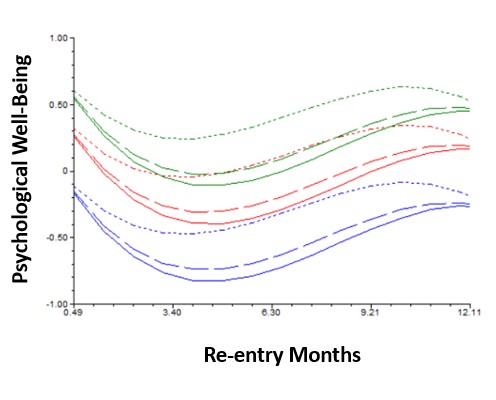
Image of the re-entry curve from Dykhouse & Bikos, 2019.
Self-Efficacy for Sociocultural Adaptation Scale
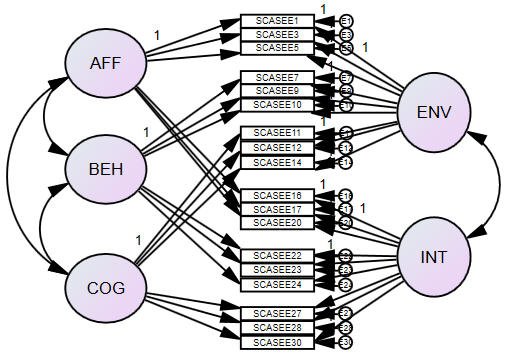
Image of the bifactor model (Bikos, Forman, & Patton, 2002) that represents the structure of the SESCAS.
Rebekah Forman’s (’14) doctoral dissertation was the
creation and evaluation of a scale that assesses self-efficacy for
sociocultural adaptation. The flexible scale can examine self-efficacy
along environmental and interpersonal contexts; affective, behavioral,
or cognitive tasks; as a combination of those two factors (e.g.,
affective tasks in the interpersonal context).
Recent Pubs
- Bikos, L. H., Forman, R., & Patton, K. M. (2021). The Self-Efficacy for Sociocultural Adaptation Scale (SESCAS): Development and initial psychometric evaluation. The Counseling Psychologist, 49(1), 33-79. https://journals-sagepub-com.ezproxy.spu.edu/doi/10.1177/0011000020951861
- Gibbs, R., Güneri, O. Y., Pankau, T., & Bikos, L. H. (2020). Birds of a Feather Fare Less Well Together: Modeling Predictors of International Student Adaptation. Sustainability, 12(6), 2317. https://doi.org/10.3390/su12062317 Available at: https://www.mdpi.com/2071-1050/12/6/2317
- Manning, S., Frieders, Z., & Bikos, L.H. (2020). When does global learning begin: Recognizing the value of student experiences prior to study away. In N. Namaste, A. Sturgill, N. Sobania, and M. Vande Berg (Eds), Minding the Gap: Integrating global learning at home and abroad. Sterling, VA: Stylus.
- Dykhouse, E. C., & Bikos, L. H. (2019). Re-entry friction: The curious effects of cultural dislocation on outcomes for global service learning returnees. International Journal of Intercultural Relations, 72(96-108). https://doi.org/10.1016/j.ijintrel.2019.07.004
- Bikos, L. H., Manning, S. B., & Frieders, Z. J. (2019). Ready or not here I come: A qualitative investigation of students’ readiness perceptions for study abroad/away. International Perspectives in Psychology: Research, Practice, Consultation, 8(2), 78–91. https://doi-org.ezproxy.spu.edu/10.1037/ipp0000105
- Coyer, C., Gebregiorgis, D., Patton, K., Gheleva, D., & Bikos, L. (2019). Cultivating global learning locally through community-based experiential education. Journal of Experiential Education, 42(2), 155-170. doi: 10.1177/1053825918824615 Retrieved from: https://journals.sagepub.com/doi/full/10.1177/1053825918824615
- Bikos, L. H., Yamamoto, M., Dykhouse, E., & Sallee, O. (2016). Integrating off-campus international experience into on-campus coursework and research. In D. Gross, K. Abrams, & C. Enns (Eds.), Internationalizing the Undergraduate Psychology Curriculum: Practical lessons learned at home and abroad (pp. 199-216). Washington D. C.: American Psychological Association.
- Bikos, L. H., Rodney, H., Gowen, M., Yamamoto, Y., & Dykhouse, E. C. (2015). Effects of searching, faith, and time on the presence of calling in international service learning returnees. Journal of Psychology and Christianity, 34, 325-339.
Recent Presentations
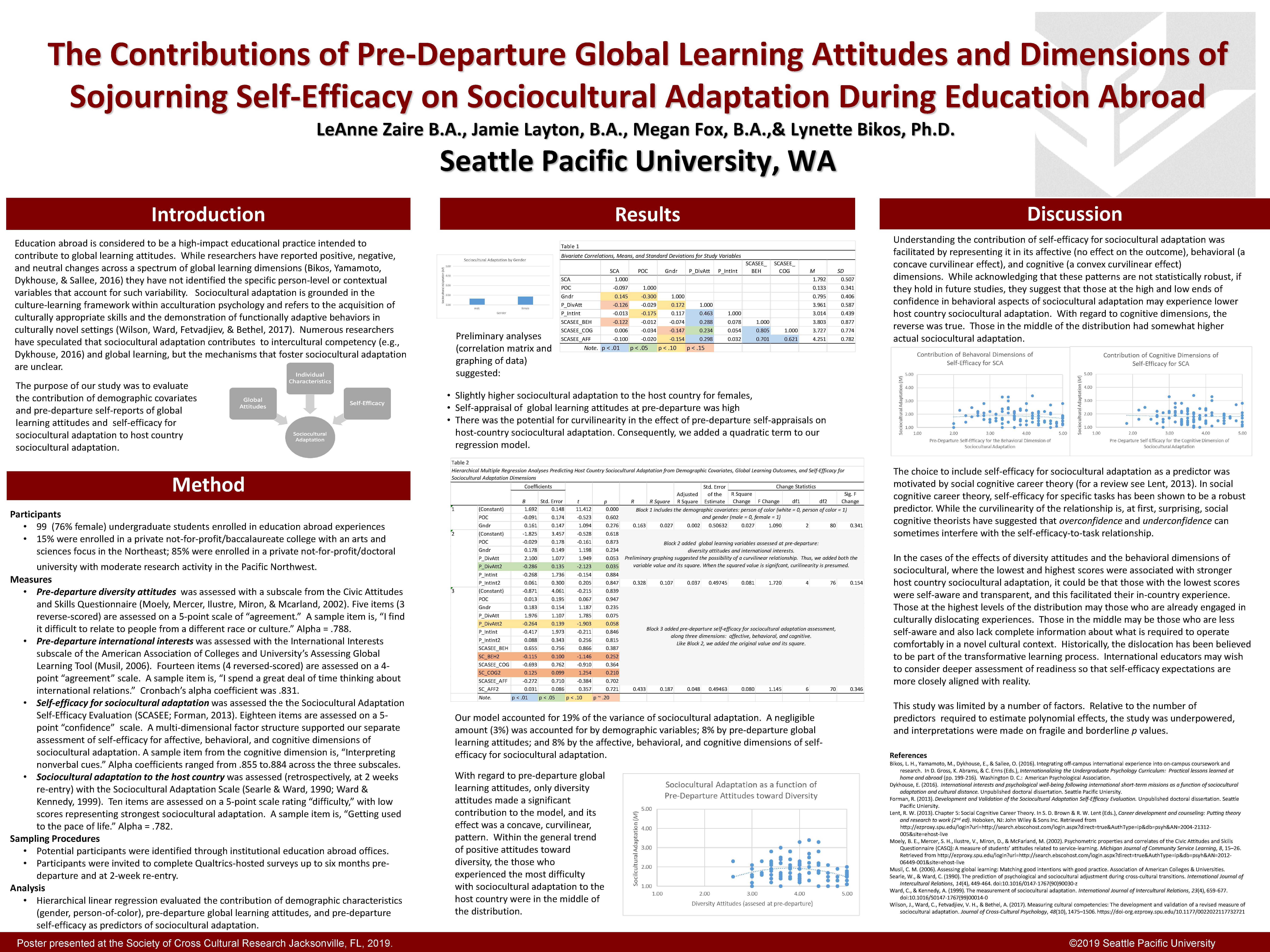
Image of the a poster evaluating the contributions of pre-departure global learning attitudes and imensions of sojourning self-efficacy on sociocultural adaptation during education abroad.
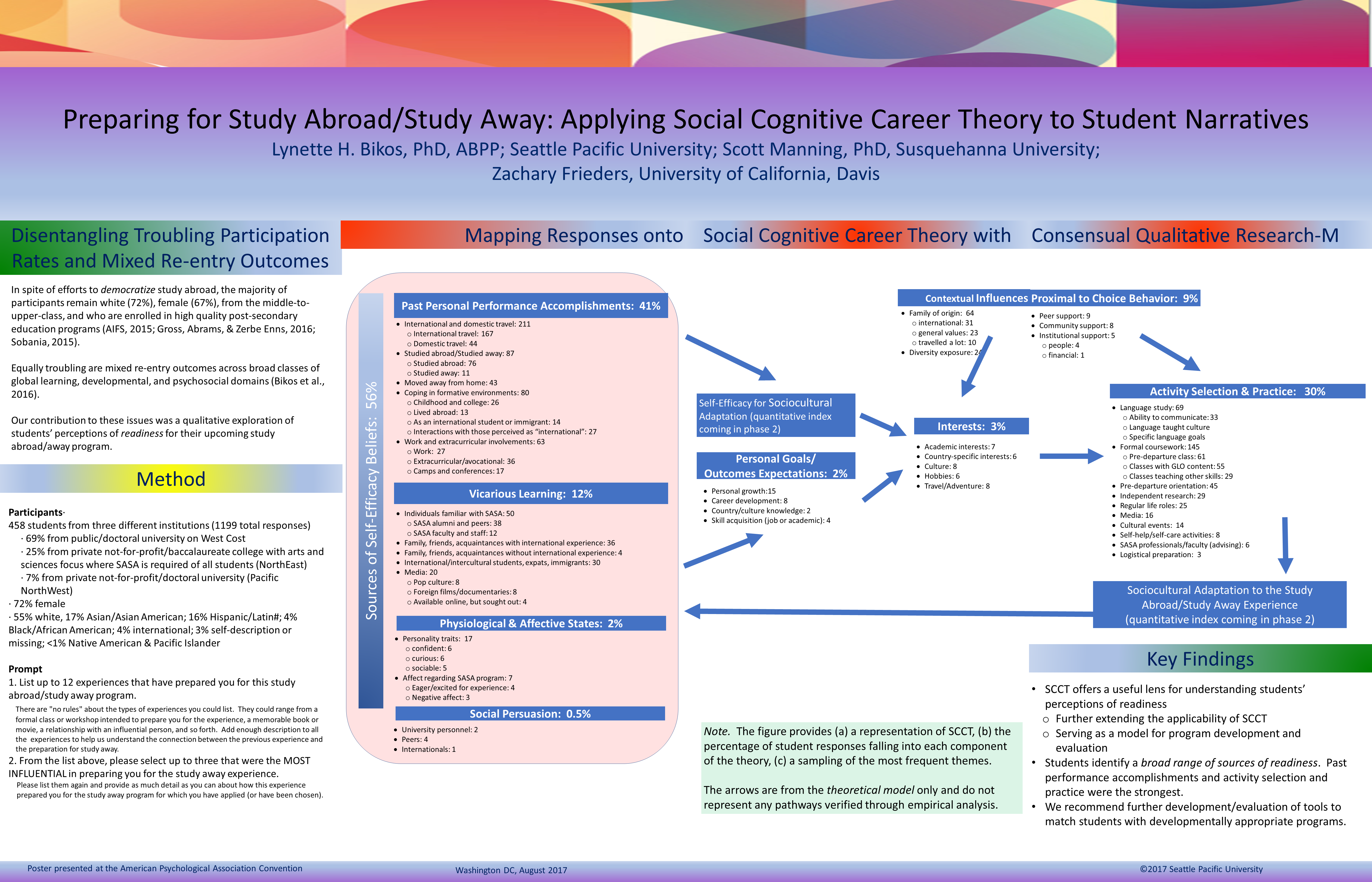
Image of the a poster that analyzed students’ perceived readiness for study abroad with social cognitive career theory.
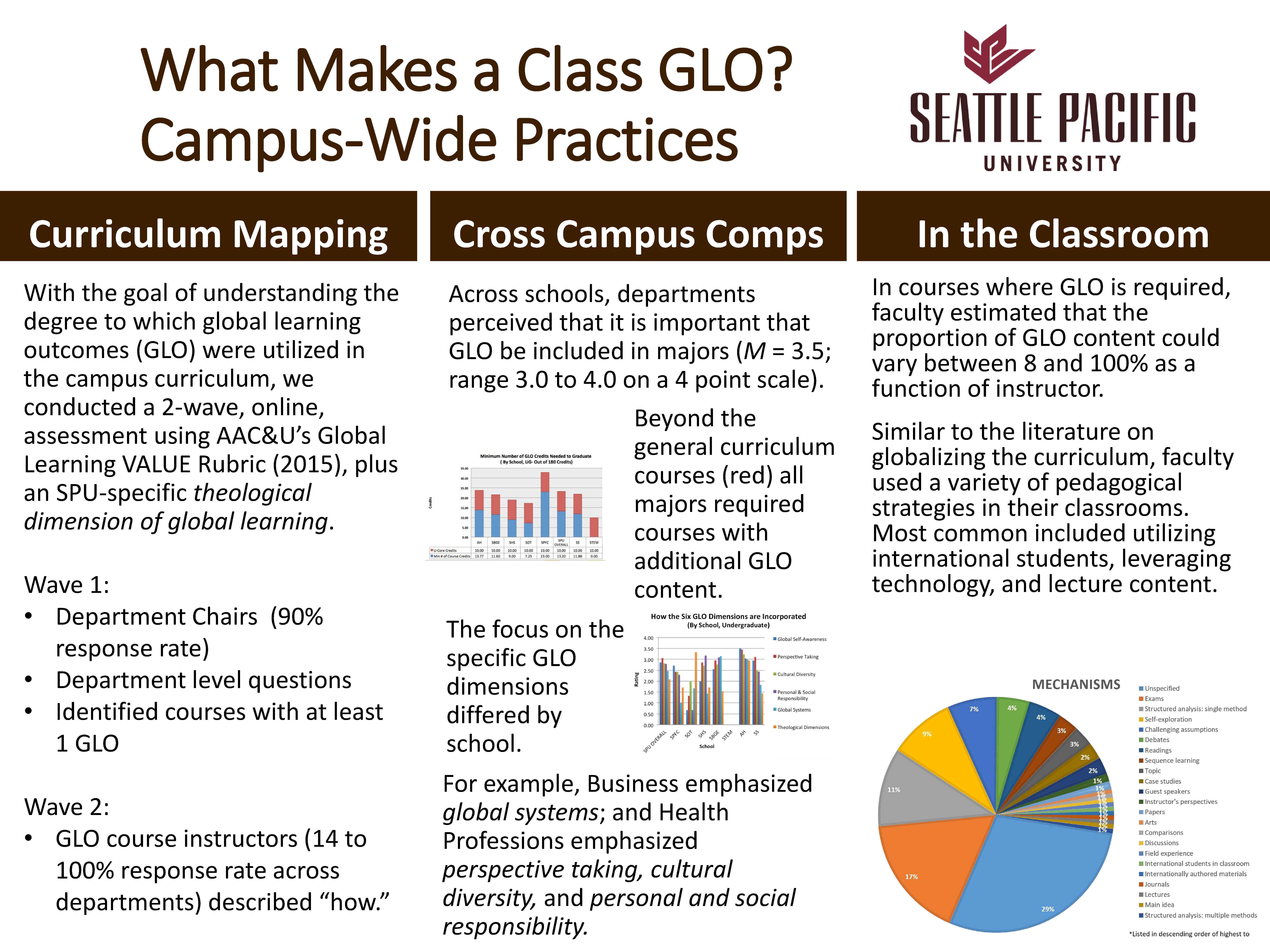
Image of the a poster reporting the results of a campus-wide curriculm mapping that assessed the degree to which courses addressed global learning outcomes.